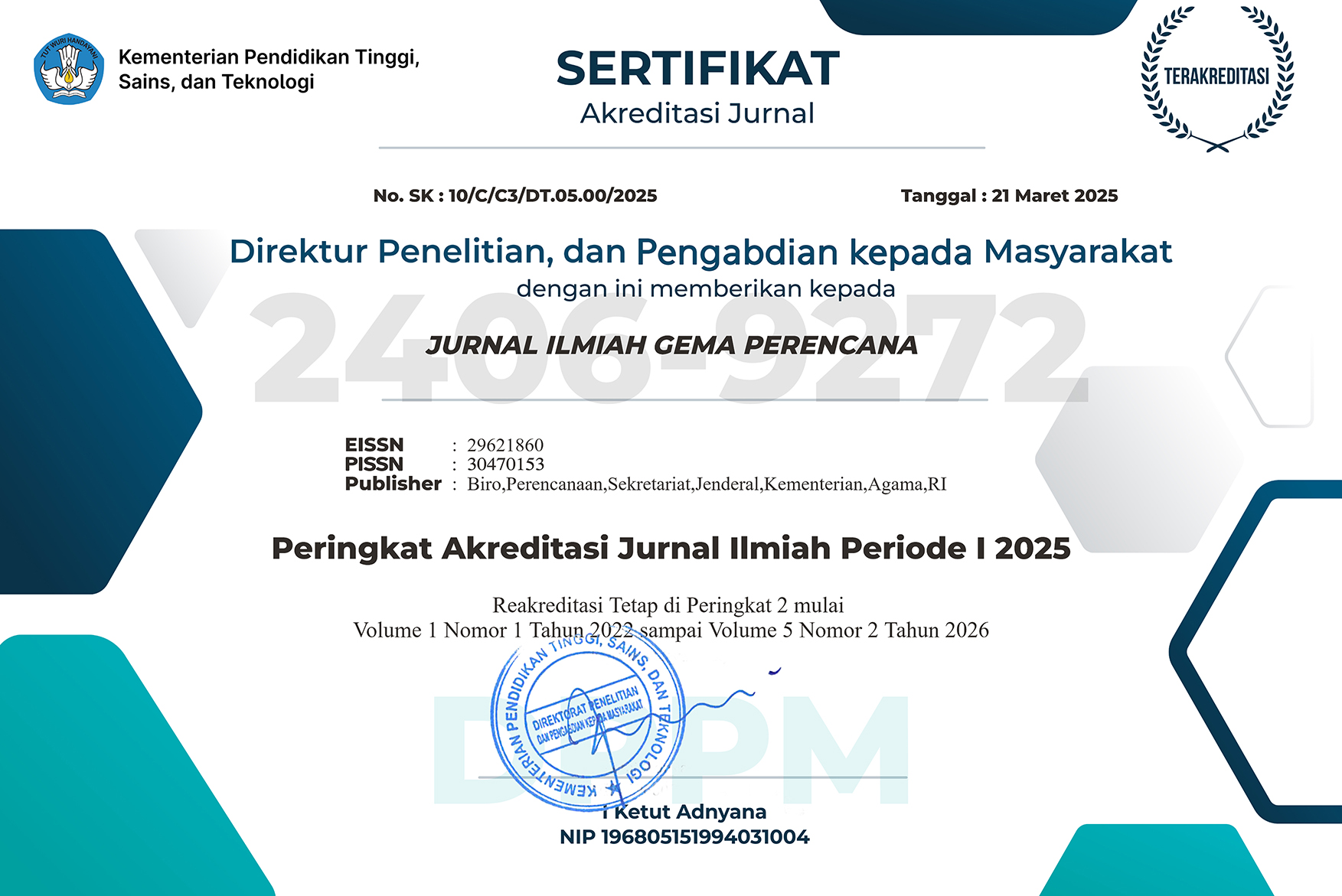Managing Fines from Corruption Cases to Enhance State Asset Recovery: A Case Study at the Corruption Eradication Commission (KPK)
DOI:
https://doi.org/10.61860/jigp.v4i2.244Abstract
The management of fines (penalties in the form of money) resulting from corruption cases is a critical issue at Indonesia's Corruption Eradication Commission (KPK), due to a decline in asset recovery achievements from 2017 to 2019, which has hindered the effective recovery of state financial losses. As an independent institution mandated to encounter corruption, KPK is responsible for enforcing court-ordered fines and compensation payments. However, administrative and execution challenges have prevented the KPK from meeting its asset recovery targets, highlighting the need for more effective and efficient fine management strategies. This study employs a qualitative methodology with an exploratory and normative juridical approach. Data were collected through observation and in-depth interviews with KPK policymakers directly involved in asset recovery and document analysis. The findings identify six key strategies to improve fines management: developing an integrated application system, optimizing the authority of execution prosecutors, incorporating fine execution performance into key performance indicators, seizing assets held by third parties, revising standard operating procedures, and strengthening asset blocking mechanisms. Implementing these strategies is expected to enhance KPK’s effectiveness in recovering state assets through improved management of corruption-related fines.
Downloads
References
Bryan A. Garner. (2019). Black’s Law Dictionary (11th ed.). Thomson Reuters.
Budivaja, A., & Bandrio, Y. (2019). Eksistensi Pidana Denda di dalam Penerapannya. Jurnal Hukum, XIX(19), 78.
Creswel, J. W. (2013). QUALITATIVE INCUIRY AND RESEARCH DESIGN (3rd ed.). Sage Publication, Inc.
Creswell, J. W., & Creswell, D. J. (2018). Research Design: Qualitative, Quantitative, and Mixed Methods Approaches (5th ed.). Sage Publications.
Dwiono, S., Negara, E. S., & Ananda, A. R. (2023). The Effect of Political Configuration on the Implementation of Tasks and Authorities of the Corruption Eradication Commission ( KPK ) in Indonesia Pengaruh Konfigurasi Politik terhadap Pelaksanaan Tugas dan Wewenang Komisi Pemberantasan Korupsi Di Indones. Formosa Journal of Multidisciplinary Research (FJMR), 2(3), 605–616.
Frinaldi, A., Rezeki, A. P. T., & Saputra, B. (2024). Digital Transformation of Government Administration : Analysis of Efficiency, Transparency, and Challenges in Indonesia. AAPA-EROPA-AGPA-IAPA International Conference 2024 Towards World Class Bureaucracy, 82–101. https://doi.org/https://doi.org/10.30589/proceedings.2024.1096
Hasibuan. (2005). Dasar-dasar manajemen. Bumi Aksara.
Herawati, A. R., Pradana, A. E., Shahira, N., & Shariffuddin, M. (2024). Indonesia Public Service Reform : Innovation Through Bureaucratic Entrepreneurship. AAPA-EROPA-AGPA-IAPA International Conference 2024 Towards World Class Bureaucracy, 12, 113–133. https://doi.org/10.30589/proceedings.2024.1100
Hidayat, H., Tanjung, D., & Harahap, M. Y. (2024). The Concept of Structural Legal Aid in Combating Corruption from the Maqashid Shariah Perspective. AT-TURAS: Jurnal Studi Keislaman, 11(1), 25–37. https://doi.org/10.33650/at-turas.v11i1.7616
Hongli Chu. (2023). Fiscal Pressure and Judicial Decisions: Evidence from Financial Penalties for Official Corruption in China. https://doi.org/http://dx.doi.org/10.2139/ssrn.4333873
International Transparency. (2022). INDEKS PERSEPSI KORUPSI INDONESIA 2022. International Transparency.
Khando, K., Islam, M. S., & Gao, S. (2023). The Emerging Technologies of Digital Payments and Associated Challenges: A Systematic Literature Review. Future Internet, 15(1). https://doi.org/10.3390/fi15010021
Kitab Undang-Undang Hukum Pidana Indonesia (1918).
Komisi Pemberantasan Korupsi. (2019). Laporan-Tahunan-KPK-2019-Bahasa.
Komisi Pemberantasan Korupsi. (2021). Laporan-Tahunan-KPK-2021(1).
Kurniawan, A. (2019). penjatuhan-pidana-denda-bagi-koruptor.
Rahmat, D. (2020). Formulation of Fine Criminal Policies and Replacement Money in Criminal Enforcement Corruption in Indonesia. Jurnal IUS Kajian Hukum Dan Keadilan, 8(1), 77–88. https://doi.org/10.29303/ius.v8i1.686
Republik Indonesia. (2020). Undang-Undang No 31 Tahun 1999. Demographic Research, 4–7.
Riwayati, A., & Handayani, D. N. (2023). The Ethics Role of Good Governance in Indonesia. ARRUS Journal of Social Sciences and Humanities, 3(2), 179–185. https://doi.org/10.35877/soshum1750
Robert C. Bogdan, S. K. B. (2022). Qualitative Research for Education An Introduction to Theory and Methods. In Pearson (Vol. 1, Issue 2).
Rustamana, A., Adillah, P. M., Maharani, N. K., & Fayyedh, F. A. (2024). Qualitative Research Methods. Indonesian Journal of Interdisciplinary Research in Science and Technology (MARCOPOLO), 2(6), 919–930. https://doi.org/https://doi.org/10.55927/marcopolo.v2i6.9907
Sari, A. R. (2023). The Impact of Good Governance on the Quality of Public Management Decision Making. Journal of Contemporary Administration and Management (ADMAN), 1(2), 39–46. https://doi.org/10.61100/adman.v1i2.21
Sativa, O., & Daskalakis, C. (2018). Performance Management in Anti-Corruption Authorities Indonesian and Swedish Cases. Integritas : Jurnal Antikorupsi, 4(2), 129–158. https://doi.org/10.32697/integritas.v4i2.264
Siswanto, H. (2007). Pengantar Manajemen. Bumi Aksara.
Siti, N. A. (2021). manajemen Kinerja (M. Nasrudin (ed.); 1st ed.). PT Nasya Expanding.
Syafrudin. (2014). optimalisasi Sinergitas antar Lembaga Penegak Hukum Lembaga Pengawas Keuangan guna meningkatkan Efektifivitas Pemberantasan Korupsi dalam rangka pembangunan nasional (Vol. 1). Lemhamnas.
Undang Undang Nomor 30 Tahun 2002 Tentang Komisi Pemberantasan Tindak Pidana Korupsi (2002).
UU Republik Indonesia. (2019). Undang-undang No 19 Tahun 2019 tentang Komisi Pemberantasan Korupsi RI.
Wati, N. (2018). Metode Penelitian Terapan (Momon). CV Pustaka Amri.
Downloads
Published
How to Cite
Issue
Section
License
Copyright (c) 2025 Nurul Hudaeini, Lela Nurlaela Wati, Ramdany

This work is licensed under a Creative Commons Attribution 4.0 International License.






